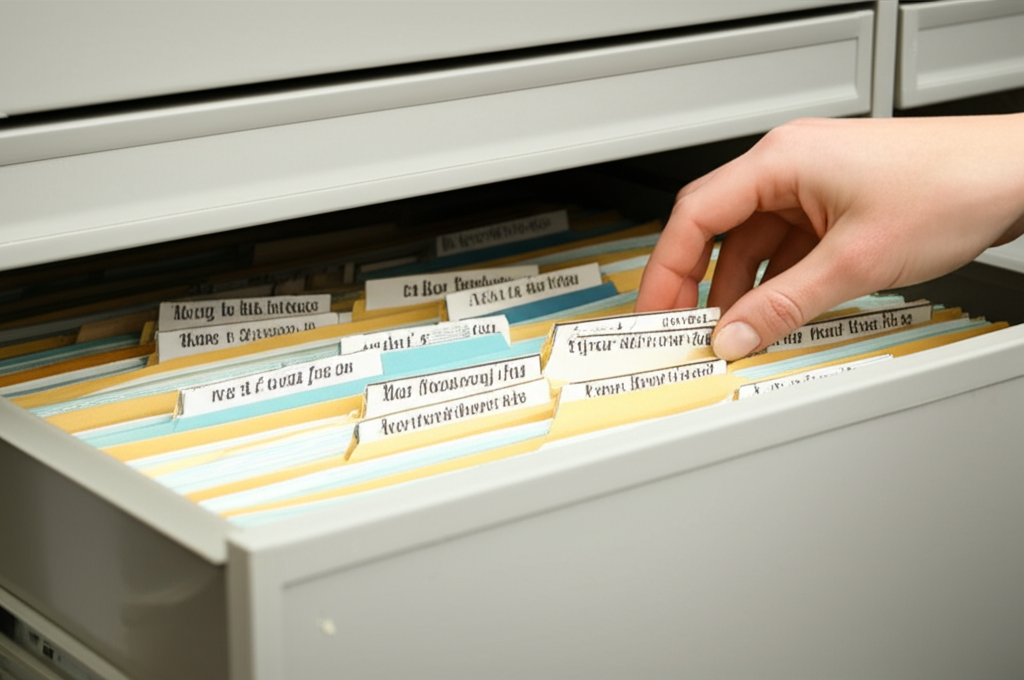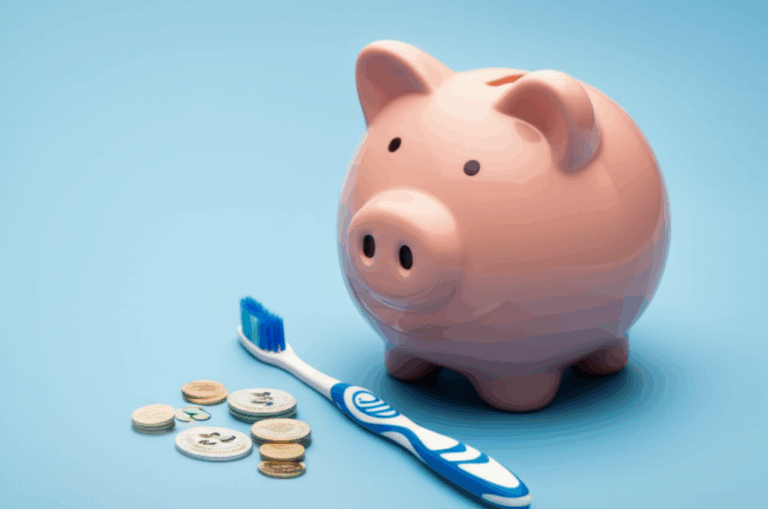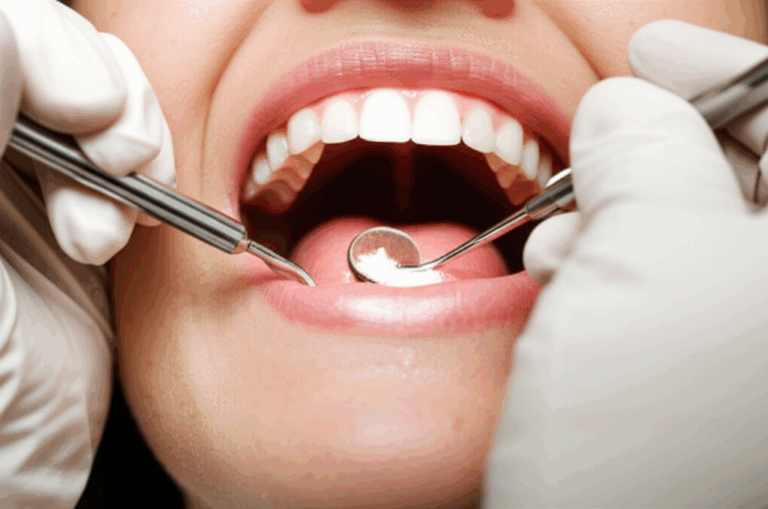
How Long Do Dentists Keep Your Records? A Simple Guide for Patients and Dental Teams
Dental records hold your story as a patient, from the first visit to the latest smile tune-up. Ever wondered how long your dentist keeps those charts, X-rays, and billing files? You’re not alone! In this guide, I’ll walk you through how long dentists keep your records and why, in plain and easy language. This matters because your rights, your smile, and your sense of safety all connect back to those files in the dentist’s office (or computer). By the end, you’ll know what to expect about dental record keeping, and how to get answers at your local dental office.
Table of Contents
1. Introduction: Why Dental Records Matter to You
Let’s be honest, most of us visit the dentist and then forget about all the paperwork. But behind every clean checkup or shiny filling is a record—a timeline of your dental care. These records are more than just about the past; they can help plan future care if you move, change insurance, or have a medical problem.
Dental records can back you up when you need proof for insurance, or if there’s a question about your treatment. Since privacy laws are stronger today, it helps to know what’s going on with your own health info.
2. What Are Dental Records and Why Should You Care?
Dental records are like report cards for your teeth. They include:
- Your exam notes
- X-rays and pictures
- Treatment plans
- Bills
- Consent forms
- Insurance info
Dentists use these files to plan care, check on progress, or even to protect themselves if someone complains.
You should care about these records because they:
- Show what work you had done, and when
- Help with second opinions
- Make moving to a new dentist easier
- Are yours to see, thanks to state laws and HIPAA
The problem? Most folks don’t know how long records are kept or how to get them. That can get tricky when you need them, which is why this guide will help.
3. Who Decides How Long Dentists Keep Records?
You might think dentists decide this. Actually, your state’s government makes the call! Every state dental board makes their own rules about dental record keeping. There’s also HIPAA, the federal privacy law, but it mainly covers how records are kept safe, not how long they’re held.
So if you move from California to Ohio, don’t think your new dentist follows the same rules about keeping records as your old one. States set different rules, and these matter most if:
- You switch dentists
- You need records for insurance
- There’s a legal problem
Dentists know these laws, so you don’t have to remember them all.
4. How Long Do Dentists Keep Adult Patient Records?
If you ask ten dentists, you’ll likely get ten different answers unless you look at their state law. But most states follow a basic rule:
- Most states tell dentists to keep adult records for 7-10 years after your last visit.
- Some states, like Texas and Florida, only ask for 5 years.
- Others, like New Jersey or Ohio, might want up to 10 years.
Why keep records so long? If there’s a complaint or lawsuit, a dentist needs your records as proof. Insurance may also want old records when checking claims.
Here’s a simple table:
| State | Record Retention (Adults) |
|---|---|
| California | 7 years |
| Ohio | 10 years |
| Florida | 5 years |
Tip: If you haven’t visited your dentist in over 10 years, your old records might already be gone.
5. What About Kids? Rules for Minor Patient Dental Records
Here things get a bit more tricky for children (minors):
- Nearly all states say to keep a kid’s dental record for at least 7-10 years after the child turns 18 (or 21 in a few spots).
- If your kid visits at age 10, those records might be around for 15-25 years.
Why? Laws cover kids longer because they may not spot problems until they’re grown up. So, the dentist needs to be able to pull up those records if needed.
Example: In many places, if your child first saw the dentist at 12 and the law says “10 years after majority,” those records stay until your child turns 28.
6. What Does the Law Say in Different States?
Each state dental board decides its own rules about keeping records. Here are a few:
- California: 7 years from last treatment (adults)
- Texas: 5 years (adults)
- New York: 6 years (adults); for kids, 6 years after they turn 18
- Ohio/New Jersey: 10 years
For kids, always add those extra years after turning 18 or 21.
Don’t worry—dentists and office staff keep track of these rules so you don’t have to.
Note: These are general tips. If you have an old claim or strange case, always check with your dentist or your state’s dental board.
7. Why Is There a Difference Between Federal and State Laws?
A lot of people get confused about HIPAA. You may have heard, “HIPAA says records must stay for 6 years.” Let’s make it clear:
- HIPAA: Covers privacy and safety of health records, not how long treatment files are kept.
- States make the rules for how long; HIPAA makes sure they stay safe and private.
HIPAA also tells dental offices to keep some papers (like privacy rules or who looked at your chart) for at least 6 years. But treatment files like X-rays? That’s up to the state.
So when you wonder, “How long does my dentist keep my records?”—the answer is almost always, “Check your state’s law.”
8. Can I Get a Copy of My Old Dental Records?
Yes! This is your right. The law says you can ask for copies of your dental records at any time. Just:
By law, dental offices can charge you a small fee for making or sending copies. They should get them to you in a reasonable time.
Here’s what you can use your records for:
- Move to a new dentist
- Get another opinion
- File an insurance claim
- Keep track of your dental health
If you want to see how your dental lab uses these records, have a look at our dental practical guide for simple tips.
9. What Happens When a Dentist Retires or the Office Closes?
When your dentist retires or shuts the office, what happens to your records?
- The law says dentists must tell patients in writing before closing.
- The office should say where your records will go—maybe a person chosen to keep them, or another dental office.
Usually, you get a short time (like 30 to 90 days in most states) to ask for your records before they’re stored or destroyed.
If a new dentist buys the office, your records may go to them right away. Always check and ask if you’re not sure!
10. How Are Dental Records Kept Safe and Secure?
Dental records aren’t just on paper anymore. Most offices use Electronic Health Records (EHRs) now, but some still keep paper files.
Dentists keep your health info safe by:
Paper Records:
- Locked in cabinets
- Shredded when destroyed
Digital Records:
- Protected by strong passwords and codes
- Backed up in safe cloud storage
- Only trusted staff can open them
Security is important! Plus, if you use special services like a china dental lab, you want to know your X-rays and scans are safe and private.
11. Why Should Records Be Kept (and What If They Aren’t)?
If a dentist keeps records too long—or throws them out too soon—it can cause real trouble:
- For you: Hard to get insurance, no proof of past care, tough to switch dentists.
- For the dentist: Fines, trouble with the law, or losing a license if someone makes a complaint.
- For insurance: No proof the treatment was done.
Dentists work hard to stick to the rules—because it keeps you and them out of trouble.
If your records are lost, HIPAA says the office must tell you, and maybe even report it if there’s any risk to your info.
12. What Should You Do if You Need Your Records?
Here’s what you do:
Tip: Always keep your own copies of big treatments, X-rays, or surgeries. This is helpful, especially if you’re working with places like a dental ceramics lab.
13. Handy Tips: Keeping Track of Your Dental Records
- Ask for copies of important X-rays or treatment plans, especially if you’re moving.
- Keep digital copies in a safe folder (use a password).
- If your kids see the dentist, save their records until they’re grown up!
- Write down the date you asked for records.
- If you’re switching insurance, gather your newest records before you switch.
14. References
- Dr. Joe Dental, DDS, checked these guidelines for correctness.
- State dental boards (California, Texas, Ohio)
- American Dental Association (ADA) – Record Keeping Guidelines.
- HIPAA info
- dental practical guide—for more info about your rights.
15. Key Takeaways: What’s Most Important for You
- Dental record keeping rules depend on your state!
- Most adult records: Held for 7-10 years; children’s records: Kept even longer, often years after turning 18.
- You can always ask for your own dental records. It’s your right.
- Records help with insurance, new dentists, getting another opinion, and legal questions.
- Dentists must keep records safe (paper or digital).
- If you don’t know the record-keeping rules, just ask your dentist!
- Check with your state’s dental board for laws where you live.
Remember: Your dental story is yours. Don’t be afraid to ask for your records or talk with your dentist if you’re not sure. That’s how to keep your smile covered—today and for years to come.
If you liked this guide and want more easy dental info, check out our dental practical guide or connect with patient dental for help every step of the way.








